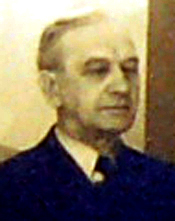Clarence W. Turner
| Clarence Wyly Turner | |
|---|---|
 |
|
| Member of the U.S. House of Representatives from Tennessee's 7th district |
|
|
In office November 7, 1922 – March 3, 1923 |
|
| Preceded by | Lemuel P. Padgett |
| Succeeded by | William C. Salmon |
| Member of the U.S. House of Representatives from Tennessee's 6th district |
|
|
In office March 4, 1933 – March 23, 1939 |
|
| Preceded by | Jo Byrns |
| Succeeded by | W. Wirt Courtney |
| Personal details | |
| Born |
October 22, 1866 Humphreys County, Tennessee |
| Died |
March 23, 1939 (aged 72) Washington, D.C. |
| Citizenship |
|
| Political party | Democratic |
| Alma mater | Northern Indiana Normal School |
| Profession |
Attorney politician editor banker judge |
Attorney politician
editor
banker
Clarence Wyly Turner (October 22, 1866 –March 23, 1939) was an American politician who served in the United States Congress as a member of the United States House of Representatives from Tennessee.
Turner was born on October 22, 1866 on a farm near Clydeton, in Humphreys County, Tennessee the son of Charles N. and Hettie B. Turner. He attended the public schools, a preparatory school in Edgewood in Dickson County, Tennessee, and National Normal Institute in Lebanon, Ohio. He graduated from the law department of Northern Indiana Normal School at Valparaiso, Indiana in 1904. He was admitted to the bar the same year and commenced practice at Waverly, Tennessee, in Humphreys County. He was also the editor of the Waverly Sentinel.
The chairman of the Democratic committee of Humphreys County for fifteen years, Turner was also a member of the Tennessee Senate in 1900, 1901, and from 1909 to 1912. He was a delegate to the Democratic National Committee in 1920. He was elected mayor of Waverly, Tennessee in 1920, and also worked as a city attorney.
Elected as a Democrat to Sixty-seventh Congress by the Tennessee's 7th congressional district to fill the vacancy caused by the death of Lemuel P. Padgett, Turner served from November 7, 1922 to March 3, 1923. He was not a candidate in 1922 for re-election to the Sixty-eighth Congress.
...
Wikipedia
